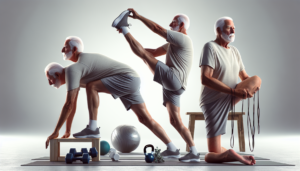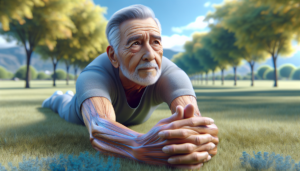Stress Relief Tools: The Top 10 Tools to Help You Relax
Even though stress is an unavoidable aspect of modern living, it doesn’t have to dictate how you live your life. There is a wide variety of stress relief tools and techniques available to assist you in relaxing and better managing the effects of stress in your life. In this piece, we’ll discuss the top ten strategies for relieving stress that you might want to consider adopting into your daily routine.
1. Mindfulness Meditation
Meditation on mindfulness is a practice that entails concentrating on the here and now and accepting it without making any sort of value judgments about it. This can help alleviate feelings of stress and anxiety, so making it easier to relax.
2. Yoga
The physical practice of yoga, in which movement and breathing are synchronized, has been shown to be effective in lowering levels of stress and enhancing feelings of relaxation. Because there is such a wide variety of yoga practices available, it is essential for you to identify a method that is appropriate for you.
3. Breathing Exercises
Breathing exercises are a straightforward yet highly efficient method for relieving stress. You can help to relax your mind and minimize feelings of anxiety by concentrating on your breath and taking long, steady breaths. This practice is called deep breathing.
4. Aromatherapy
The use of essential oils in aromatherapy has been shown to be effective in reducing stress and promoting relaxation. Aromas such as lavender, chamomile, and bergamot are particularly good at easing muscle tension and promoting relaxation.
5. Exercise
Exercising is an excellent method for reducing stress and improving one’s mood. Discover an activity that you take pleasure in doing and make it a standard part of your routine. This could be something as simple as going for a swim or as involved as enrolling in a yoga class.
6. Journaling
Writing in a journal can be a therapeutic exercise that will assist you in processing your feelings and thoughts. You can gain perspective and lessen emotions of tension and worry if you write down how you’re feeling on paper.
7. Progressive Muscle Relaxation
Tensing and relaxing different muscular groups in your body is the practice of progressive muscle relaxation. This type of exercise can help you let go of stress and feel more relaxed overall.
8. Acupuncture
Needles are inserted into certain sites on the body as part of the practice of acupuncture, which is considered to be a kind of traditional Chinese medicine. It is capable of assisting in the reduction of emotions of tension and anxiety and in the promotion of relaxation.
9. Massage
The practice of massage, which is both pleasant and therapeutic, can assist in the release of tension and in the promotion of relaxation. Choose a sort of massage that suits you well and incorporate it on a regular basis into your routine. It doesn’t matter if it’s a full-body massage or a foot massage; the key is to find one that works for you.
10. Guided Imagery
During guided imagery, you are encouraged to make use of your imagination to conjure up an image in your head that is serene and relaxing. This has the potential to lessen feelings of tension and increase levels of relaxation.
Conclusion
The effective management of stress and the promotion of relaxation can both be accomplished with the use of stress reduction techniques. There is a wide variety of options available to pick from, including aromatherapy, yoga, and mindfulness meditation, amongst others. Discovering the strategies and methods that work best for you and incorporating them into your daily routine should be your primary focus. You may improve both your mental and physical well-being, as well as lessen the negative effects that stress has on your body, by making stress relief strategies a regular part of your life and routine.
We also have and article about Stress relief drinks



